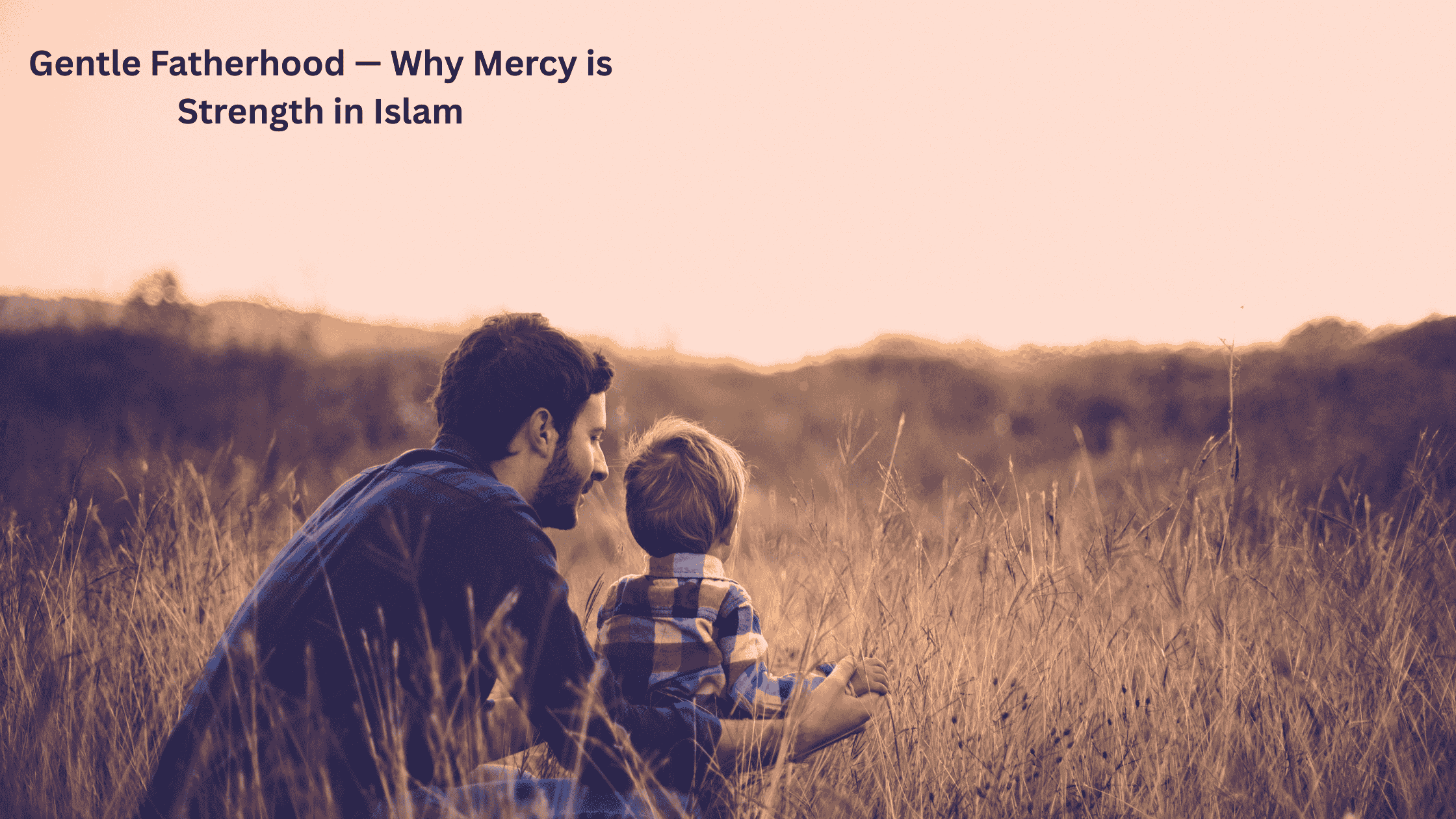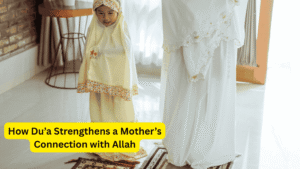Introduction
In many cultures, fatherhood has been wrongly equated with toughness, strictness, and emotional distance. Yet in Islam, true strength is found in mercy. The Prophet Muhammad (pbuh) redefined leadership and fatherhood by showing that compassion is not weakness — it is the greatest form of strength.
Allah describes the Prophet (pbuh):
“And We have not sent you, [O Muhammad], except as a mercy to the worlds.” (Qur’an 21:107)
This mercy extended into his role as a father and grandfather. He played with children, comforted them, forgave mistakes, and guided with gentleness. For Muslim fathers today, reviving this prophetic model of gentle fatherhood is key to raising children who are emotionally secure, spiritually strong, and confident in their Islamic identity.
1. Mercy as a Prophetic Standard
When people expressed surprise at the Prophet’s affection toward children, he reminded them:
“He who does not show mercy will not be shown mercy.” (Bukhari, Muslim)
Gentle fatherhood is not indulgence or permissiveness — it is setting clear boundaries with kindness and guiding with compassion instead of harshness.
Practical Takeaway: Fathers should see mercy as a strength to emulate, not a softness to avoid.
2. Gentle Discipline Over Harshness
The Prophet (pbuh) corrected mistakes with calm guidance. When a boy ate without etiquette, he did not scold but gently instructed:
“O young boy, say Bismillah, eat with your right hand, and eat from what is near you.” (Bukhari, Muslim)
Practical Steps for Fathers:
- Correct mistakes privately, without humiliation.
- Replace yelling with calm explanations.
- Use natural consequences (cleaning a mess) instead of punishments that break dignity.
Why It Works: Children learn self-control and respect rather than fear and resentment.
3. Encouraging Positive Behavior
The Prophet (pbuh) motivated children with encouragement, not constant criticism. He praised good actions and gave hopeful guidance.
Practical Steps:
- Praise effort, not just achievement. Example: “I saw how hard you worked on this.”
- Use positive reinforcement: a smile, a pat on the back, or kind words.
- Tell stories of sahaba as role models.
Why It Works: Encouragement builds self-confidence, motivating children to repeat good behavior.
4. Mercy Does Not Mean Weakness
Being gentle does not mean lacking firmness. The Prophet (pbuh) set clear rules, but applied them with wisdom.
Practical Steps:
- Set household expectations clearly (salah, respect, chores).
- Stay consistent so children know boundaries.
- Apply discipline with justice, not anger.
Why It Works: Children understand that mercy and discipline can coexist. Rules guided by compassion earn respect, not fear.
5. The Psychological Benefits of Gentle Fatherhood
Modern research supports what Islam taught centuries ago: children raised in merciful, supportive homes are more resilient, emotionally balanced, and secure. Harshness leads to rebellion or insecurity; gentleness fosters love and trust.
Prophetic Parallel: The Prophet’s grandchildren felt safe climbing on his back in prayer — a sign of comfort and emotional security.
6. Practical Examples of Gentle Fatherhood Today
- Bedtime Rituals: Read stories or du’as together before sleep.
- Daily Affection: Hugs, kisses, and warm greetings when returning home.
- Shared Activities: Playing, cooking, or walking together.
- Teaching Moments: Turn mistakes into learning, not fear.
- Du’a Together: End the day making du’a for one another.
7. Gentle Fatherhood as Worship
Every act of compassion is ibadah (worship). Smiling, playing, teaching, and comforting children earn reward. The Prophet (pbuh) said:
“The best of you are those who are best to their families, and I am the best among you to my family.” (Tirmidhi)
For fathers, mercy is not only parenting — it is a sunnah that brings closeness to Allah.
Daily Gentle Fatherhood Checklist
- Hugged or kissed my child today.
- Corrected with calm words, not anger.
- Encouraged effort or praised good behavior.
- Set clear boundaries with kindness.
- Spent intentional bonding time.
- Made du’a for my child by name.
Conclusion
Gentle fatherhood is not a new trend — it is the Prophetic model. Mercy is strength, not weakness. Muslim fathers who revive this sunnah raise children who are both emotionally confident and spiritually grounded.
By combining kindness with consistency, affection with guidance, and mercy with justice, fathers fulfill their trust as leaders of the household and earn Allah’s reward.
Begin your journey of prophetic parenting today with our Prophetic Fatherhood Daily Habits Pack — available at Halalings.com to guide fathers in building mercy-centered homes.





